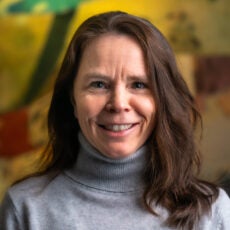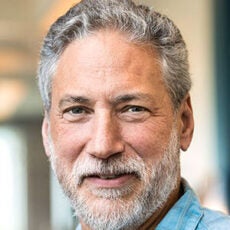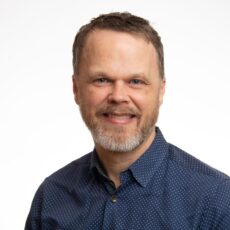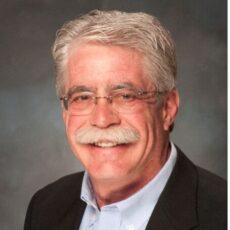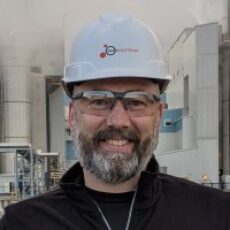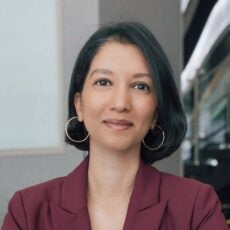
Harmonizing MRV Protocols for Scalable and Equitable Carbon Dioxide Removal
Event Summary
This workshop will focus on advancing Measurement, Reporting, and Verification (MRV) standards for Carbon Dioxide Removal (CDR), considering two key objectives:
Discussion will consider both upstream MRV challenges (e.g., LCA, energy use, process emissions) and downstream challenges (e.g., losses and uncertainties in open systems, data gaps, and long-term monitoring). We will also highlight key uncertainties in current research and implications for protocol development and registry alignment.
Agenda
8:30–9:00 AM — Arrival & Registration
Coffee and informal networking.
9:00–9:20 AM — Opening Remarks
Workshop objectives, significance, and how today’s outcomes will feed directly into the ongoing MRV proposal workstreams.
- Jennifer Wilcox (Kleinman Center, Isometric, WRI)
- Steve Hamburg (EDF)
Morning Session — Technical MRV Protocol Development & Harmonization
9:20–10:30 AM
Panel 1: Science-Based MRV for CDR — From Upstream LCA to Downstream Fate
Explore how protocols can address the full MRV chain — upstream and downstream — and embed uncertainty ranges into crediting.
Introduction
- Allen Fawcett, Division Director for Global Change, Pacific Northwest National Lab (remote)
Panelists
- Roger Aines, Energy Program Chief Scientist, Lawrence Livermore National Lab
- Brian Buma, Senior Climate Scientist, Environmental Defense Fund
- Hao Cai, Group Leader for Life Cycle Analysis, Argonne National Lab
- Greg Cooney, Senior Fellow, Kleinman Center for Energy Policy, Penn
Key Discussion Points
- Integrating downstream loss factors into MRV and registry protocols.
- How to assign losses when understanding is incomplete and empirical data is scarce.
- Modeling approaches for different pathways (ERW, OAE, biochar) given varying complexity and data availability.
- Registry alignment and transparency — responding to EDF’s call for more open assumptions and datasets.
10:30–11:15 AM
Facilitated Table Discussions
Mixed groups (Labs, NGOs, registries, buyers, investors) map MRV methodological gaps (upstream & downstream) and propose steps to close them.
11:15–11:35 AM — Break
11:35–12:15 PM
Report-Out: Technical MRV
Tables share consensus, divergences, innovations, and recommended next steps.
12:15–1:00 PM — Lunch
Afternoon Session — MRV Governance, Policy, and Market Integration
1:00–2:00 PM
Panel 2: Governance, Markets, and Equitable MRV Implementation
Examine how technical MRV advances can be embedded in governance and market frameworks, with particular focus on Global South participation and Article 6 alignment.
Panelists
- Tim Hansen, Chief Executive Officer, 350Solutions
- Ella Holme, Head of Mineralization Science, Isometric
- Rory Jacobson, Head of Policy, Carbon Direct
- Anu Khan, Executive Director, Carbon Removal Standards Initiative
Key Discussion Points
- Aligning MRV standards with Article 6.2 & 6.4 — avoiding fragmentation.
- Policy and incentive structures for incorporating downstream uncertainty.
- Equity safeguards and capacity-building for Global South integration.
2:00–2:40 PM
Facilitated Table Discussions
Identify governance levers, policy tools, and data transparency mechanisms to operationalize MRV harmonization globally.
2:40–3:00 PM — Coffee Break
3:00–3:40 PM
Report-Out: Governance & Integration
3:40–4:15 PM
Closing Session
Group Discussion & Next Steps:
- Synthesis of technical and governance insights.
- Agreement on post-workshop deliverables:
- Blog summarizing key takeaways (~1 week)
- Co-authored perspective for EES journal (assign writing roles)
Expected Outputs
- Consensus Areas: MRV requirements for upstream & downstream processes.
- Identified Gaps: Methodological, data, governance.
- Emerging Innovations: Tools/methods for loss estimation, registry alignment.
- Recommendations: Immediate and long-term MRV framework improvements.
- Policy/Equity Actions: Practical steps to ensure equitable market integration.
Speakers
Jennifer Wilcox
Presidential Distinguished ProfessorJen Wilcox is Presidential Distinguished Professor of Chemical Engineering and Energy Policy. She previously served as Principal Deputy Assistant Secretary for the Office of Fossil Energy and Carbon Management at the Department of Energy.
Steven Hamburg
Senior Vice President/Chief Scientist, EDFSteven Hamburg oversees EDF’s scientific integrity and collaborations, with 35+ years in climate, methane, and ecosystem research. Former professor and IPCC lead author, he has published 100+ papers on biogeochemistry and climate change.
Allen Fawcett
Director, Joint Global Change Research Institute (PNNL & UMD)Allen Fawcett leads the Joint Change Research Institute, advancing global change modeling and analysis. Formerly at EPA, he has contributed to major energy modeling forums and international climate policy advisory bodies.
Roger Aines
Energy Program Chief Scientist, Lawrence Livermore National LaboratoryRoger Aines leads LLNL’s Carbon Initiative on carbon removal technologies. Former DOE Senior Advisor for CDR, he helped design the Carbon Negative Earthshot and national marine CDR strategy.
Brian Burma
Senior Climate Scientist, EDFBrian Buma co-leads EDF’s Climate Innovation Initiative, testing breakthrough solutions for climate impact. A National Geographic Explorer, he has authored 90+ scientific papers and a book on climate change.
Hao Cai
Leader, Life Cycle Analysis Group, Argonne National LaboratoryHao Cai leads development of Argonne’s GREET® model, with research on LCA of fuels, energy systems, carbon management, and materials supply chains. He has authored 100+ peer-reviewed publications.
Greg Cooney
Senior FellowGreg Cooney is a senior fellow at the Kleinman Center. He previously served as director of the policy and analysis division in the U.S. Department of Energy’s Office of Carbon Management.
Tim Hansen
CEO, 350SolutionsTim Hansen leads 350Solutions, specializing in verification of CO₂ removal technologies. A chemical engineer with 25+ years in R&D and analysis, he focuses on validation and crediting of carbon projects.
Ella Holme
Head of Mineralization Science, IsometricElla Holme leads Isometric’s enhanced weathering efforts. With a Ph.D. in Geosciences, her research spans mineral weathering kinetics, geochemistry, and the limits of natural carbon capture processes.
Rory Jacobson
Head of Policy, Carbon DirectRory Jacobson directs policy at Carbon Direct. Formerly DOE’s Director of CDR, he has led carbon policy at Carbon180, NRDC, and WRI, and holds a master’s from Yale’s School of Forestry as a Kerry Fellow.
Anu Khan
Executive Director, Carbon Removal Standards InitiativeAnu Khan founded CRSI to advance carbon removal policy and quantification. Formerly at Carbon180 and Founders Pledge, she brings expertise in science, innovation, and philanthropic climate strategy.
Jennifer Wilcox
Jennifer Wilcox is Presidential Distinguished Professor of Chemical Engineering and Energy Policy at the University of Pennsylvania, with a home at the Kleinman Center for Energy Policy and the School of Engineering and Applied Science. At Penn, she oversees the Clean Energy Conversions Lab.
Wilcox also works with Isometric as their Chief Scientist and is a senior fellow at the World Resources Institute, where she leverages her expertise to help accelerate policy support and investments in research, development, and deployment of industrial decarbonization and carbon removal solutions in order to achieve net-zero emissions by 2050.
Most recently, Wilcox served as Principal Deputy Assistant Secretary for the Office of Fossil Energy and Carbon Management at the Department of Energy. Before coming to Penn, she was the James H. Manning Chaired Professor of Chemical Engineering at Worcester Polytechnic Institute.
Wilcox’s research takes aim at the nexus of energy and the environment, developing both mitigation and adaptation strategies to minimize negative climate impacts associated with society’s dependence on fossil fuels. This work carefully examines the role of carbon management and opportunities therein that could assist in preventing 2° C warming by 2100. Carbon management includes a mix of technologies spanning from the direct removal of carbon dioxide from the atmosphere to its capture from industrial, utility-scale exhaust streams, followed by utilization or reliable storage of carbon dioxide on a timescale and magnitude that will have a positive impact on our current climate change crisis.
Funding for her research is primarily sourced through the National Science Foundation, Department of Energy and the private sector. She has served on a number of committees including the National Academy of Sciences and the American Physical Society to assess carbon capture methods and impacts on climate. She is currently a member of the Energy & Environmental Science Journal Editorial Board. She is the author of the first textbook on carbon capture and, most recently, the CDR Primer. In 2023, she was named one of the TIME 100 Climate.
Having grown up in rural Maine, Wilcox has a profound respect and appreciation of nature, which permeates her work as she focuses on minimizing negative impacts of humankind on our natural environment.
Steven Hamburg
Steven Hamburg is the Chief Scientist at the Environmental Defense Fund, where he ensures the scientific integrity of EDF’s positions and programs, and facilitates collaborations with researchers from a diversity of institutions and countries. He also helps identify emerging science relevant to EDF’s mission.
Steven oversees EDF’s scientific efforts, including work on quantifying methane emissions from the natural gas supply chain and the use of remote sensing to measure greenhouse gas emissions. He has been actively involved in biogeochemistry, forest ecology and climate change impacts research for more than 35 years, and has published more than 100 scientific papers.
Prior to joining EDF in 2008, Steven was an environmental science professor at the University of Kansas and Brown University. While at Kansas he directed the Environmental Studies Program and in 1990 started one of the first sustainability programs, serving as KU’s Environmental Ombudsman.
At Brown he was the founding director of the Global Environment Program at the Watson Institute for International Studies, which he led for more than a decade. Steven served as a lead author for the Intergovernmental Panel on Climate Change and was acknowledged as one of the contributing recipients of the 2007 Nobel Peace Prize. He was twice awarded an Environmental Merit award by the US EPA Region I for his climate change-related activities. Steven serves on many governmental and university advisory boards, and boards of trustees.
Allen Fawcett
Allen Fawcett is the Director of the Joint Global Change Research Institute (JGCRI)—a partnership between the U.S. Department of Energy’s Pacific Northwest National Laboratory (PNNL) and the University of Maryland at College Park—and is jointly appointed as a Research Professor in the UMD School of Public Policy’s Center for Global Sustainability. JGCRI brings together expertise in research, modeling and analysis to advance scientific understanding of the ways in which human, energy and environmental systems interact. Since its formation, JGCRI has provided input to the White House, Congress, United Nations and other national and international governing and advising bodies. Within PNNL, Dr. Fawcett is the Director of the Global Change Division.
Before coming to PNNL in January of 2024, Fawcett previously served as a Branch Chief in the Environmental Protection Agency’s Office of Atmospheric Programs. Dr. Fawcett has been extensively involved with the Stanford Energy Modeling Forum (EMF), co-chairing the EMF 24, 32, and 37 model intercomparison projects. He also served as a member of the Advisory Council for the Integrated Assessment Modeling Consortium. Fawcett joined the Environmental Protection Agency in 2003 after receiving his Ph.D. in Economics from the University of Texas. He holds a Bachelor of Arts degree in Economics from the College of William & Mary.
Roger Aines
Roger Aines is the Energy Program Chief Scientist at Lawrence Livermore Laboratory, which conducts government and private sector research in clean energy technology. Roger developed and led the Carbon Initiative at LLNL, which aims to understand, develop, and implement technologies for the removal of carbon dioxide from the atmosphere, so-called carbon dioxide removal technologies. He has worked on all aspects of carbon management technology and analysis.
During 2023-2034 Roger was on detail assignment to DOE as the Senior Advisor for Carbon Dioxide Removal in the Office of the Under Secretary for Energy and Innovation. He provided oversight and assistance with all aspects of the Carbon Negative Earthshot. This included coordinating the efforts within DOE, and liaising with other government agencies engaged in CDR work including NOAA and the Department of Interior. He was one of the authors of the National Marine Carbon Dioxide Removal Research Strategy issued by the National Science and Technology Council. He holds a Bachelor of Arts degree in Chemistry from Carleton College, and Doctor of Philosophy in geochemistry from the California Institute of Technology.
Brian Burma
Brian Buma is a Senior Climate Scientist at the Environmental Defense Fund, where he co-leads the Climate Innovation Initiative, a program designed to push the boundaries of how we confront climate change. The Innovation Initiative at EDF seeks out breakthrough ideas at early stages, testing their scientific foundation and potential for quantifying, reducing, or reversing climate impacts. From pioneering new remote sensing technologies to reimagining carbon removal, transmission systems, and wildfire management, the work is united by a central goal: delivering solutions with measurable, real-world impact on global temperatures. Innovation is not an abstract exercise—success is defined by tangible outcomes that matter on the ground, in the atmosphere, and across communities worldwide. Prior to EDF, Brian was a university professor and has authored more than 90 peer-reviewed scientific publications, as well as a widely read book on climate change science for the general public. He is also a frequent speaker on global environmental change. Beyond his academic and policy work, Brian has been a National Geographic Explorer for over a decade, committed to advancing public understanding of our rapidly changing planet.
Hao Cai
Dr. Cai is the Leader of the Life Cycle Analysis Group at the LCA and Technology Assessment Department at Argonne National Laboratory. His group leads the development and annual release of Argonne’s R&D GREET® LCA model. Dr. Cai’s research focuses on LCA of low-emission fuels, energy systems, carbon management and utilization technologies, as well as manufacturing and supply chains of critical materials and building materials. Dr. Cai has authored over 100 peer-reviewed journal articles and technical reports in the area of assessing energy and environmental effects of transportation fuels, energy systems, and carbon dioxide removal technologies.
Greg Cooney
Greg Cooney is a nationally recognized expert in life cycle assessment (LCA) and carbon management with 20 years of experience spanning government, industry, and consulting. Most recently, Greg served as director of the policy and analysis division in the U.S. Department of Energy’s Office of Carbon Management, where he oversaw technical analysis related to carbon dioxide removal, point-source capture, and related decarbonization technologies. His work supported policy analysis and technical guidance development across several federal programs, including the 45Q, 45V, and 45Z tax credits as well as multiple provisions under the Bipartisan Infrastructure Law. Greg has also contributed to cross-agency collaborations with Treasury, EPA, and other DOE offices and laboratories, and has led efforts to develop LCA guidance for emerging carbon management pathways, including carbon dioxide removal.
Prior to his role at DOE Headquarters, Greg worked at DuPont as an internal sustainability consultant and as a contractor to the National Energy Technology Laboratory (with Booz Allen Hamilton and KeyLogic) focusing on LCA applications for energy systems and carbon mitigation strategies. His work includes technical leadership, model development, and publication of LCA methods in both government reports and peer-reviewed journals. He holds a master’s degree in civil and environmental engineering from the University of Pittsburgh and a bachelor’s degree in chemical engineering from Penn State. He resides in Pittsburgh, Pennsylvania.
Tim Hansen
Tim is Founder and CEO of 350Solutions, an independent carbon technology consulting and verification company. He is a chemical engineer with over 25 years of experience managing and conducting technology research, development, demonstration and analysis programs. Since 2019, Tim has been leading 305Solutions’ efforts in validation and verification of novel CO2 utilization and removal technologies, projects, and crediting.
Ella Holme
Ella Holme is the Head of Enhanced Weathering at Isometric. She previously served as a Research Scientist at CREW Carbon and worked as a Postdoctoral Researcher in Noah Planavsky’s lab at Yale University’s Department of Earth and Planetary Sciences. Her research focused on experimental geochemistry, the kinetics of enhanced mineral weathering reactions, the physical and chemical evolution of rock during enhanced weathering and the limits of carbon capture in natural waters. Ella holds a Ph.D. in Geosciences from Stony Brook University, where she studied carbonate formation on early Earth and Mars.
Rory Jacobson
Rory Jacobson is the Head of Policy at Carbon Direct. Previously, he served as the Director of the Carbon Dioxide Removal program within the Office of Fossil Energy and Carbon Management (FECM) at the U.S. Department of Energy (DOE). Prior to joining DOE, Jacobson was a Deputy Director of Policy at Carbon180, where he managed the federal policy portfolio for engineered carbon removal pathways. He has led carbon management research and analysis in multiple roles, including with the Natural Resources Defense Council and the World Resources Institute. Jacobson received his master’s in environmental management from the Yale School of Forestry, where he was a Kerry Fellow.
Anu Khan
Anu Khan is the founder and executive director of the Carbon Removal Standards Initiative (CRSI), a nonprofit that provides technical assistance and capacity building for carbon removal policy, focused on carbon quantification. Anu previously led the Science & Innovation team at Carbon180, a DC-based policy think tank, and co-led climate grantmaking at Founders Pledge, a philanthropic fund focused on high-impact policy advocacy for energy innovation. An electrochemist by training, Anu holds degrees from Princeton and Caltech.
